A woman with blue-tipped hair, glasses, and a dark gray sweater stands to speak to a group of approximately 70 teenagers. She’s the third presenter to talk that evening. The room is warm, and the crowd is mixed with high schoolers on their phones, listening, or chatting about the subjects of the event’s presentation so far.
The topic? Mental health, and how that has affected her life and the lives of people in the audience.
“I’m a little nervous,” she says.
“Whoo!” Someone shouts from the crowd. “You’re doing great.”
The woman’s name is Nicole. She’s a volunteer from the National Alliance on Mental Illness (NAMI), speaking about her own lived experiences with mental health issues as part of an annual youth town hall put on by the Happy Valley Youth Council, an advisory board composed of high school students living in Happy Valley. At this year’s Nov. 15 town hall, the focus is on tobacco, vaping, drug use, alcohol consumption, mental health, and suicide prevention. The council — composed of 13 members, 3 of which are from La Salle — was motivated to choose these topics by their theme for the year: youth health and wellness.
Led by two co-chairs, Riley Thames and Ava Stahl, current students at Nelson High School, and overseen by advisors Steve Campbell and Stephani Hern, the council wanted to raise awareness about mental health struggles that teens face. According to La Salle sophomore Larissa Bonn, the council aimed to put their “words into actions” regarding their theme for the year by holding their first event, emphasizing their focus on the mental health and wellness of teens in Happy Valley.
Bonn, along with fellow La Salle sophomores John Rask and David Sharyan, was sworn into the council on June 20. Bonn says she joined because of a desire to “work with other youth leaders and be involved in [her] community,” and Sharyan echoed that, saying he hoped to help create a bridge between La Salle and the youth council. Though there has been a gap in involvement from La Salle in the youth council over the past couple of years, La Salle religion teacher Mr. Noah Banks was one of the founding members. He organized one of the first Rx Drug Take Back events, which now occurs annually on April 22, National Prescription Drug Take Back Day. The event aims to provide a safe and accessible way for residents of Happy Valley to drop off and dispose of prescription or over-the-counter medications.
Bonn, Sharyan, and Rask aim to create connections between the council and La Salle by encouraging La Salle students to attend events like the town hall and represent the school on the council.
Planning for the town hall began around two months before the event took place, according to Bonn. The council meets on the second Wednesday every month at 4:30 p.m. in the city hall, so coordinating the event spanned a total of two meetings.
Organized by the council with the help of their advisors, the event was a collaboration with Clackamas County Services and NAMI, aiming to “provide a platform” for local teens to hear and engage in discussions about issues that are affecting them.
Doors opened at 6 p.m., with free pizza provided for dinner, so teens could eat while they discussed the issues highlighted in the town hall before the council welcomed and introduced everyone to the event at 6:45 p.m. Icebreakers in the form of “positivity boards” — posters with questions and sticky notes for responses — along with trivia allowed people to become comfortable with the environment and engage with the council.
“We’re discussing heavy topics,” co-chair Thames said, encouraging people to respond to the icebreakers and engage in the trivia. “So we wanted to start with something light.”
Questions like, “What year was Happy Valley established?” and “What was the first Pixar movie to be released?” were asked by Sharyan, who led the trivia competition. Teams were based off of people at the same table, and the group with the first person to answer correctly received candy. By the end of the evening, Twizzlers, Sweet Tarts, and Laffy Taffies collected in piles on the tables of successful teams.
Trivia not only educated the audience on quick facts about Happy Valley — like its highest point of elevation, or its population as of 2021 — it also invited them to connect with Sharyan as he read questions, along with teens around them and presenters later on, as it created a positive and chatty atmosphere where those in the crowd were invited to share their thoughts. Applause for correct answers and a joking, “Is that the Lake Oswego kid who answered that?” from Campbell, after a student from Lake Oswego correctly guessed Happy Valley’s population, built rapport between the people gathered for the town hall, creating a space where teens could guess the celebrity with the most Grammys, but also share their thoughts around complex topics like mental health and drug use.
Engaging teens in “meaningful discussion about important topics affecting them” was one of the focuses of the event, and though a Q & A took place once the presentations were over, questions were asked and encouraged by presenters as they spoke. High school students watching were also able to connect with the presentation as two volunteers shared how they handled mental health during their time in high school.
Nicole, along with another woman named Jen, shared their personal stories with the audience, following Jamie Zentner, a senior program planner from Clackamas County Health. Zenter focused on the effects of vaping and tobacco use on a teen’s mental health, sharing statistics from the Oregon Student Health Survey that covered the overlap between students who self-reported feeling anxious and those who used E-Cigarettes, alcohol, or marijuana, while Nicole and Jen shared a more personal look at youth mental health.
After a brief introduction by Gary Marshke, an outreach and development manager from NAMI, Nicole — though she was nervous — shared her experience with the audience, starting with a definition of mental health and then progressing to cover stigma, which she said was an obstacle people face in receiving mental health treatment.
“Stigma is the biggest reason why people don’t get mental health treatment,” Nicole said. Stigma — and a lack of awareness around mental health — were obstacles that both Nicole and Jen referenced when talking about their experiences.
“No one talked about mental health,” Jen said, listing the lack of discussion along with social pressure as some of the biggest challenges she faced in getting treatment, as well as opening up to friends and family about her mental health. They both explained later on in the Q & A that it’s important to talk about because you never know what’s going on for people.
When asked by an audience member about how to help their friends, they stressed the importance of being “open to having those honest conversations,” and that openly talking about mental health will not only encourage teens to recognize and support others when they are struggling, but also find ways to ask for help themselves.
“I’m on my way to get my PhD,” Nicole said, describing her personal experience receiving negative messages about her future and how that affected her. “I skipped half of high school because I was told I was stupid, [but] I’m not stupid, I’m alive and I’m here.”
“Success looks like a lot of different things,” Jen said. “It gets better. That’s cheesy, but true.”
Correction: Nov. 30, 2023
A previous version of this article misstated the last name of one of the co-chairs of the Happy Valley Youth Council.


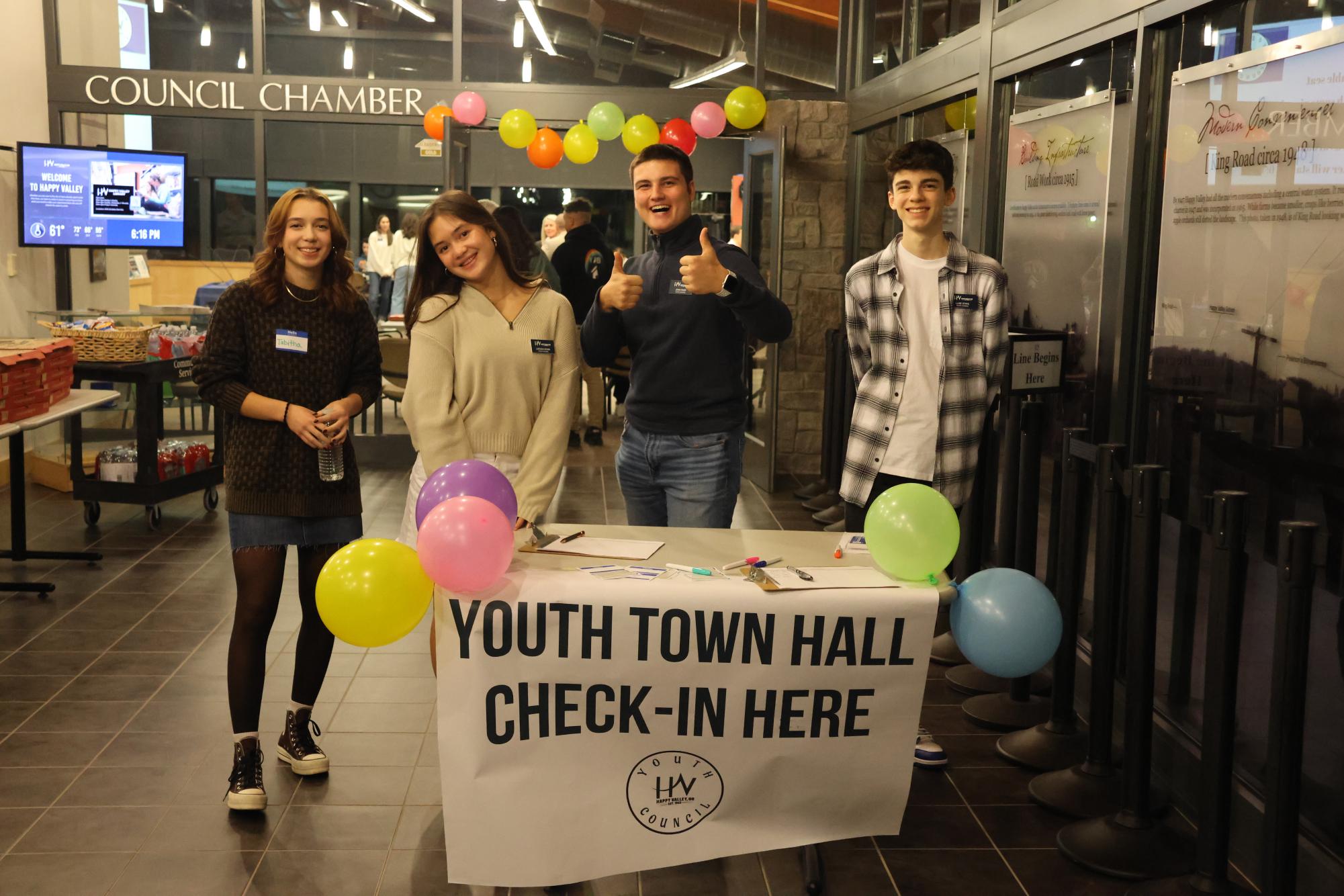
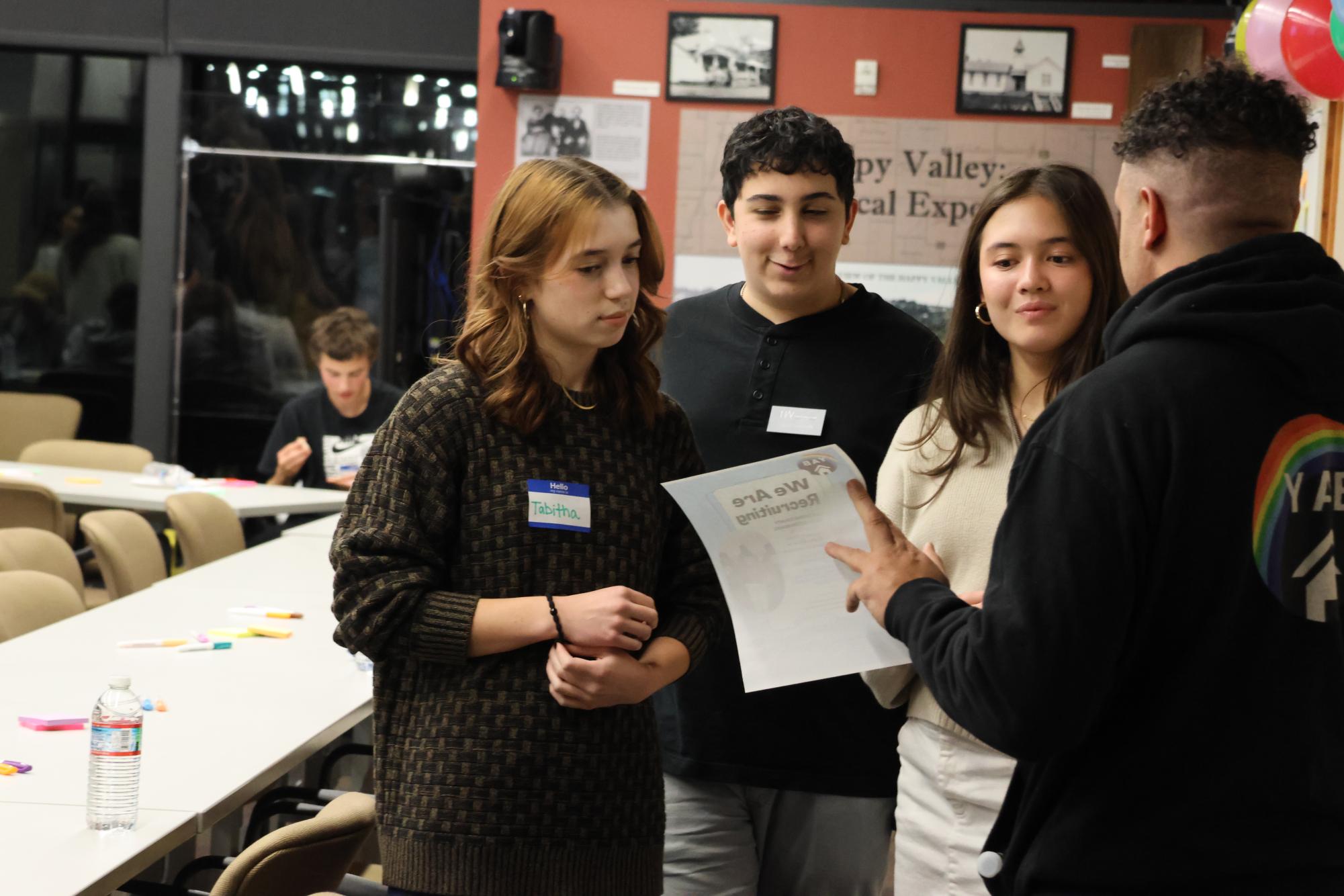
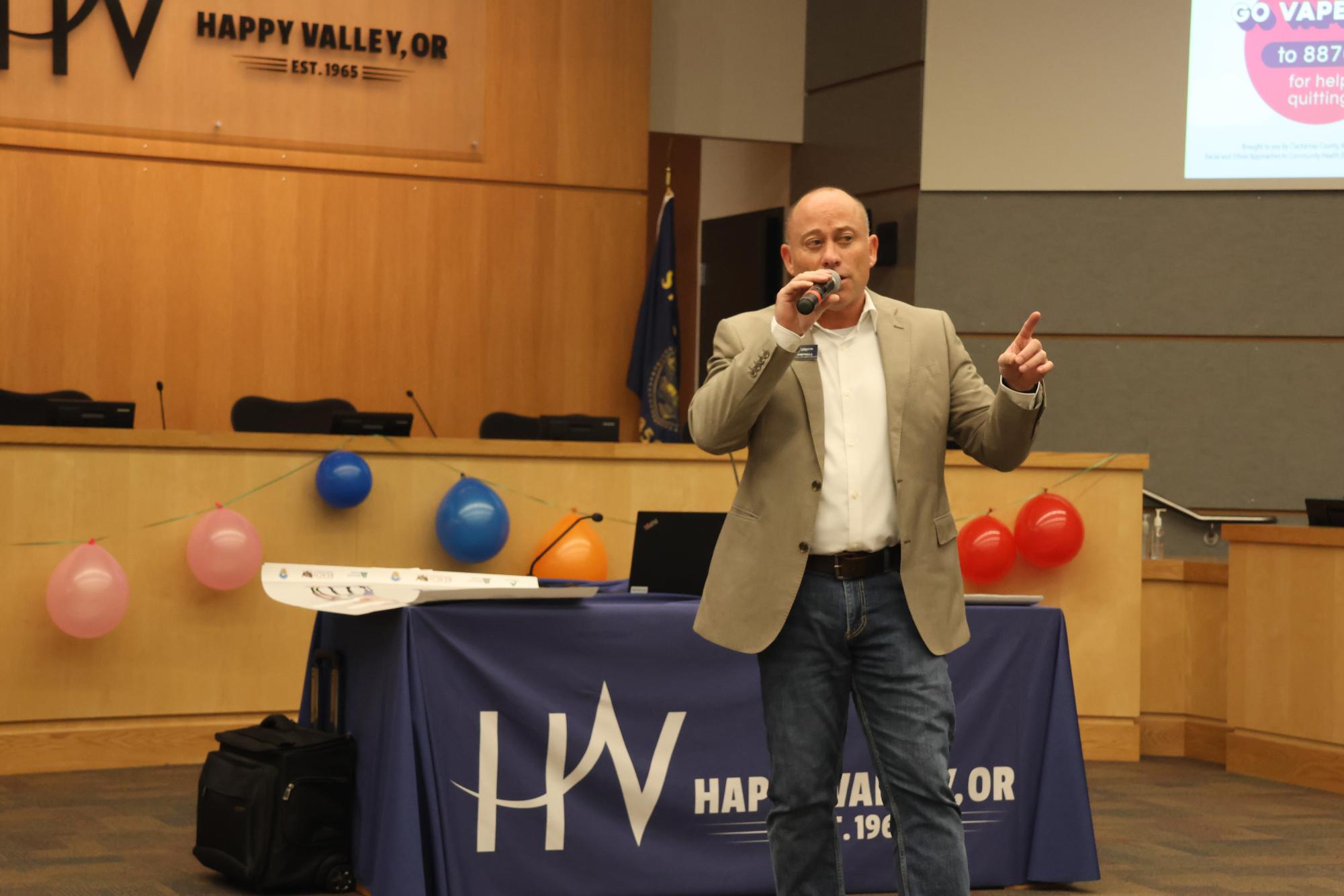
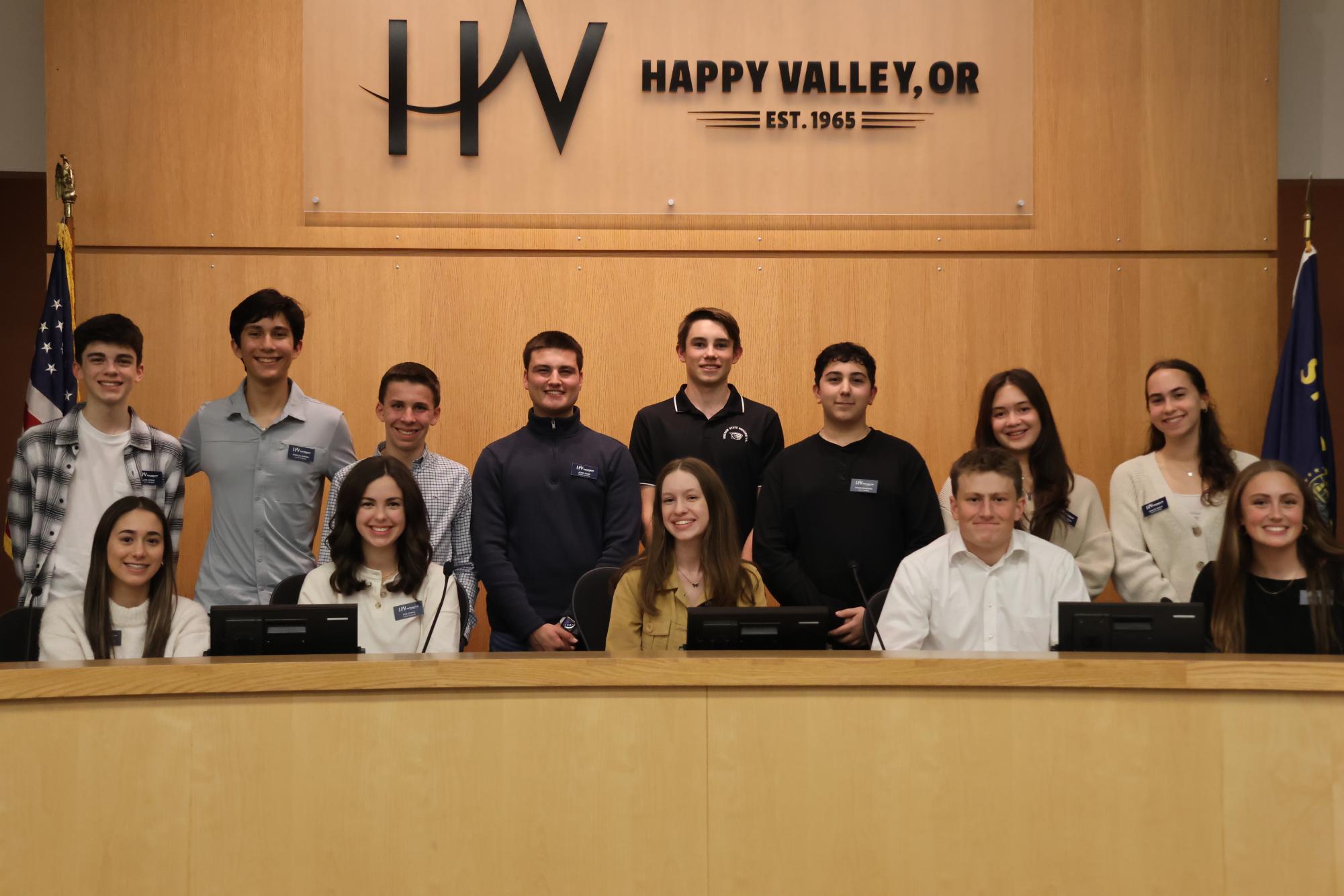
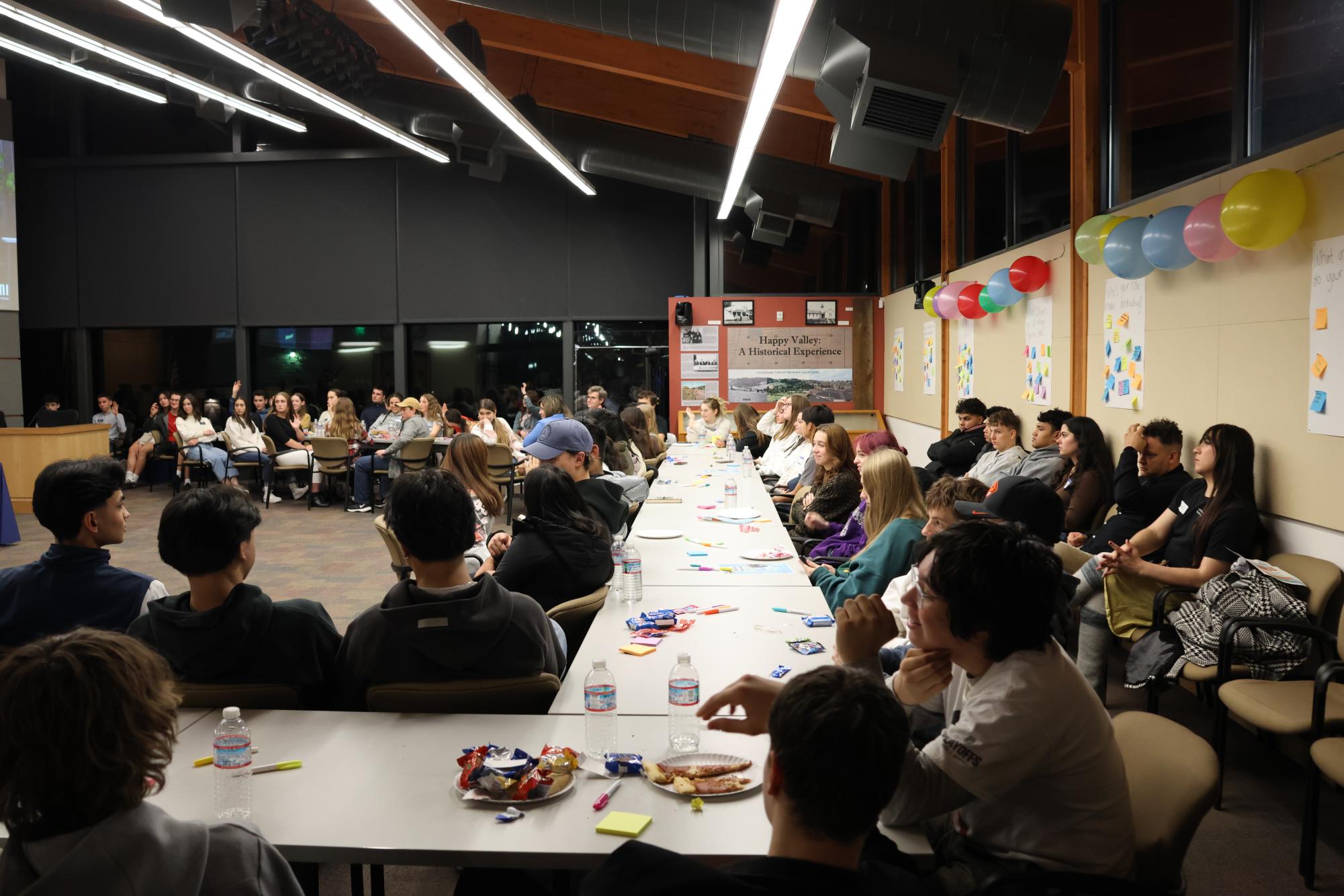
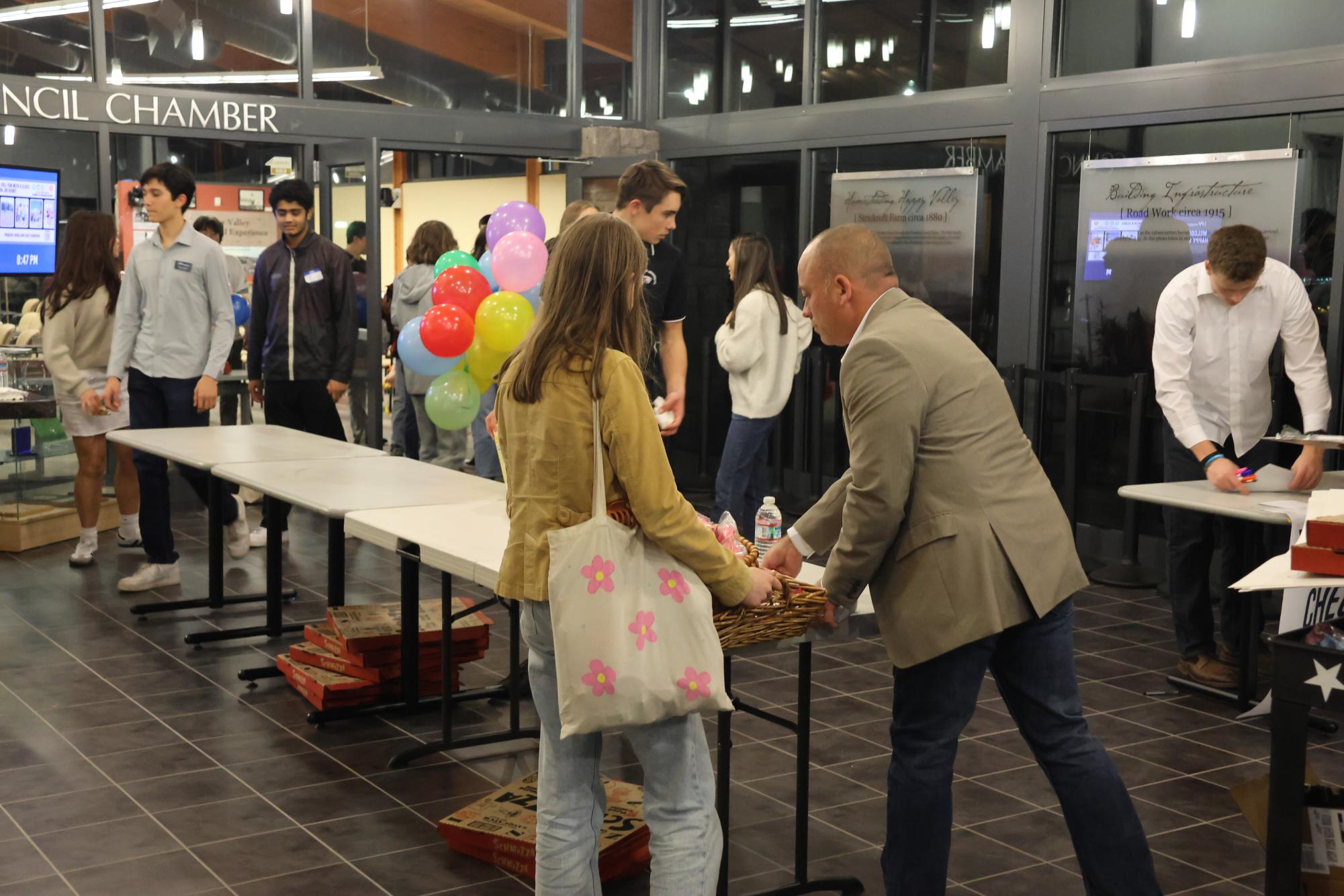
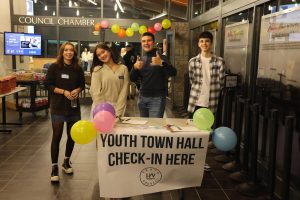
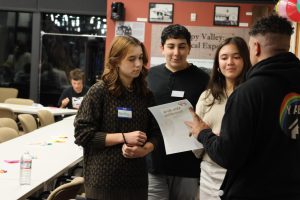
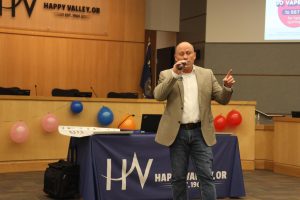
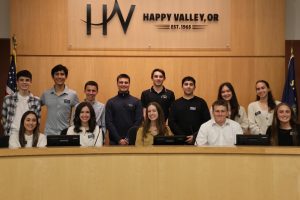
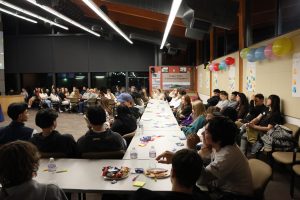
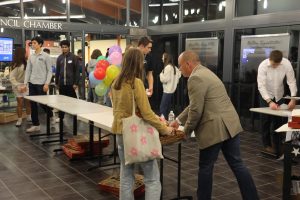
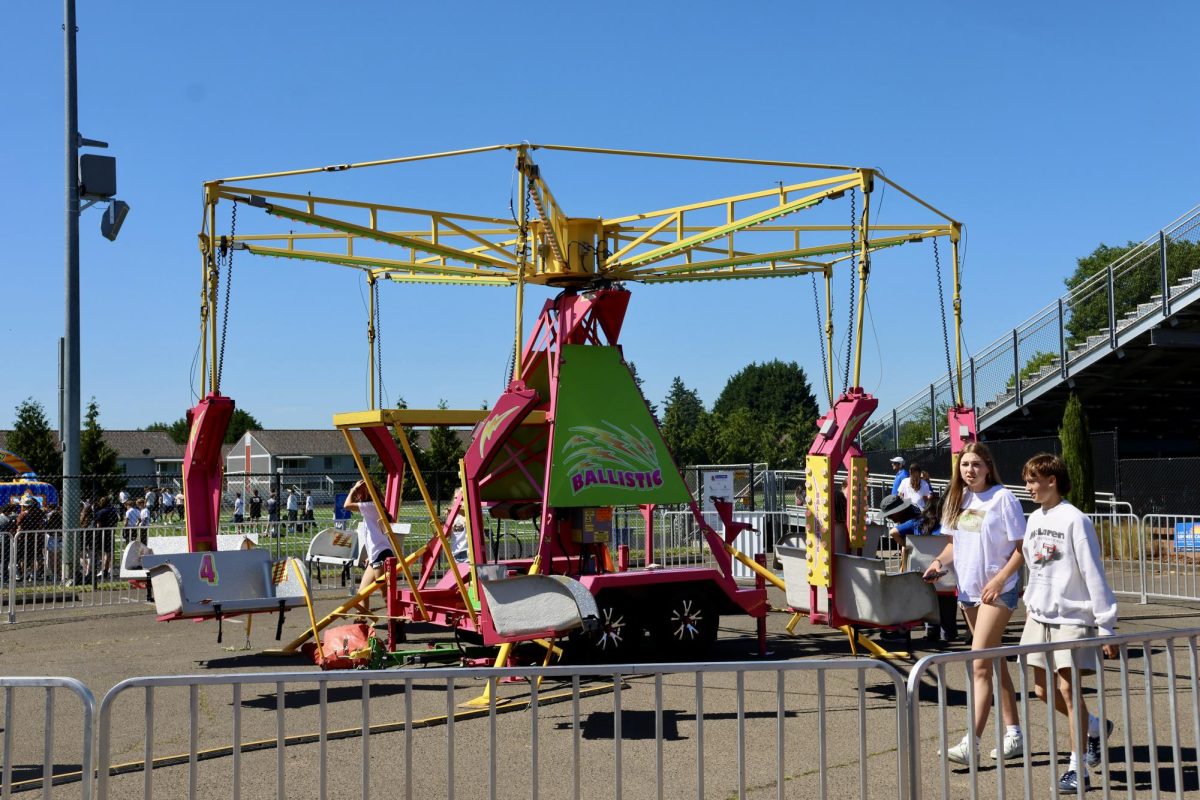
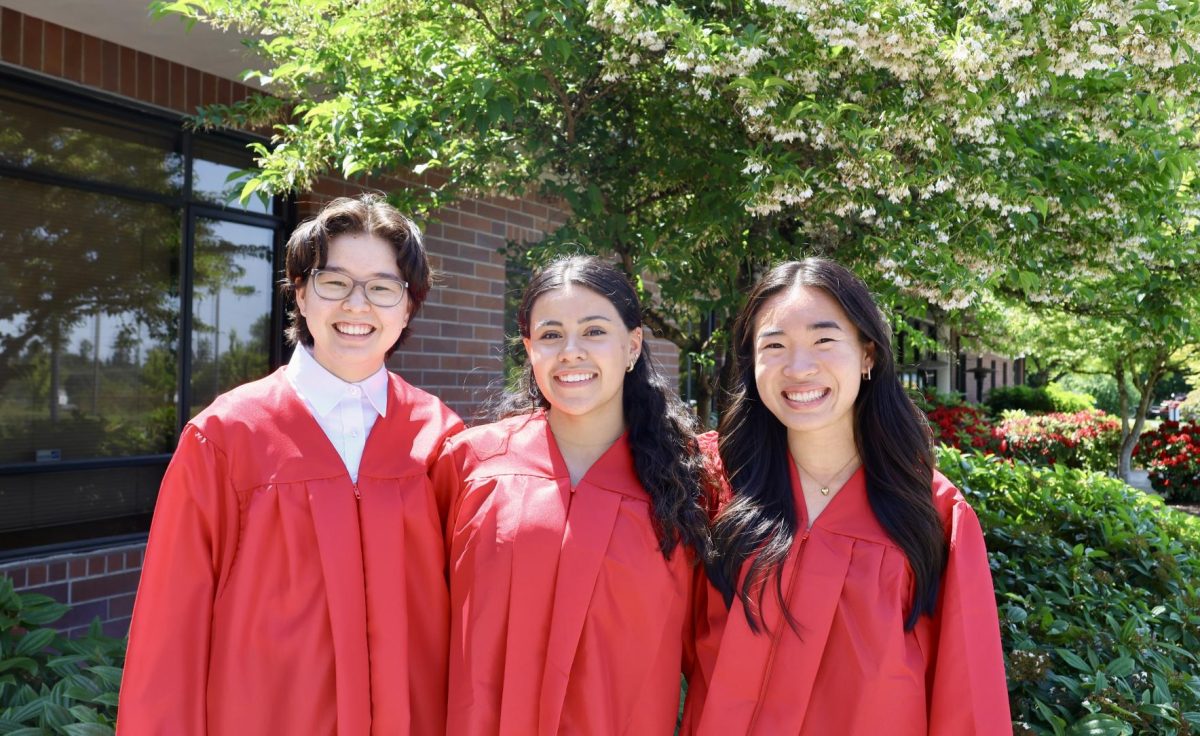
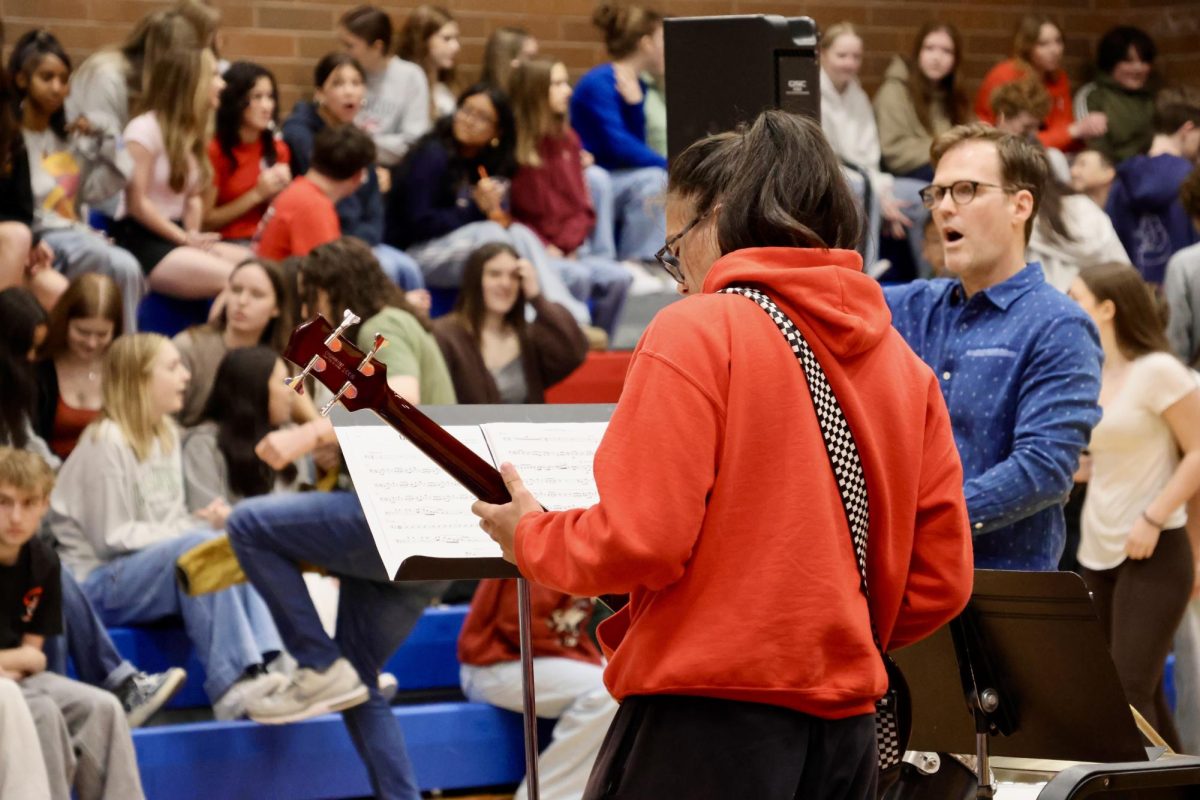
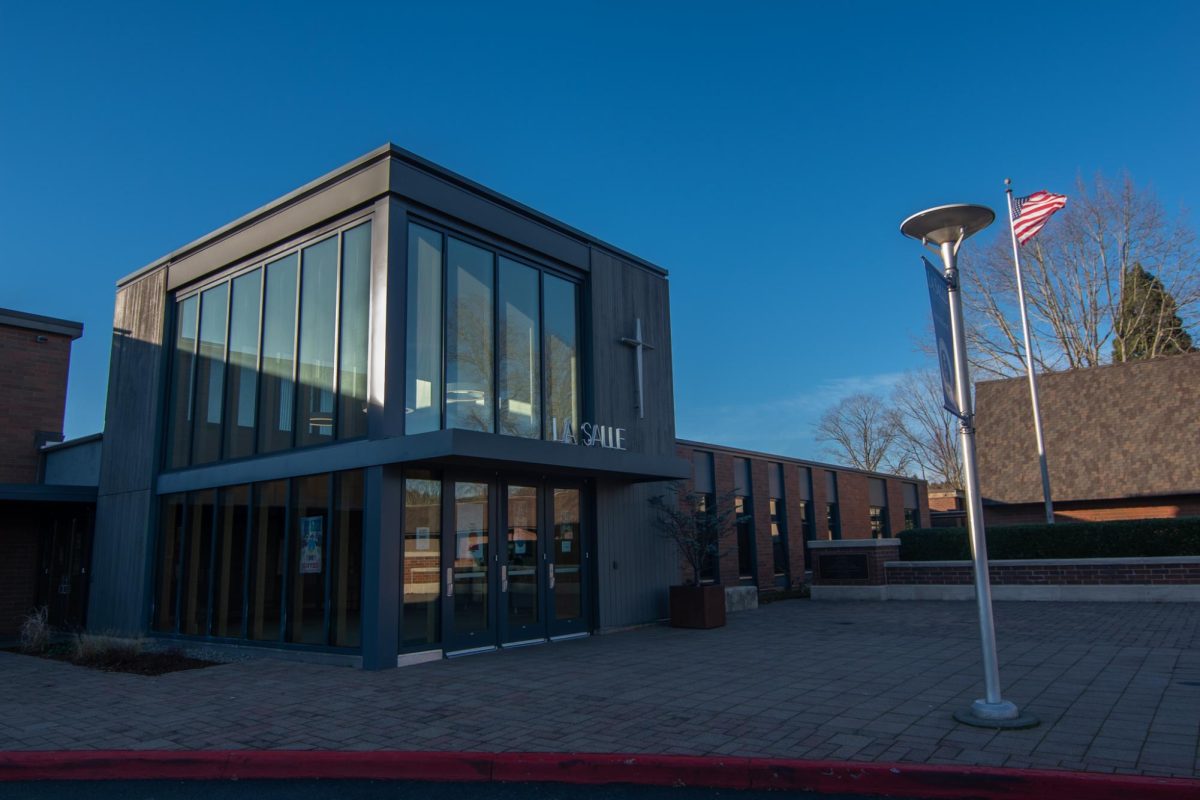
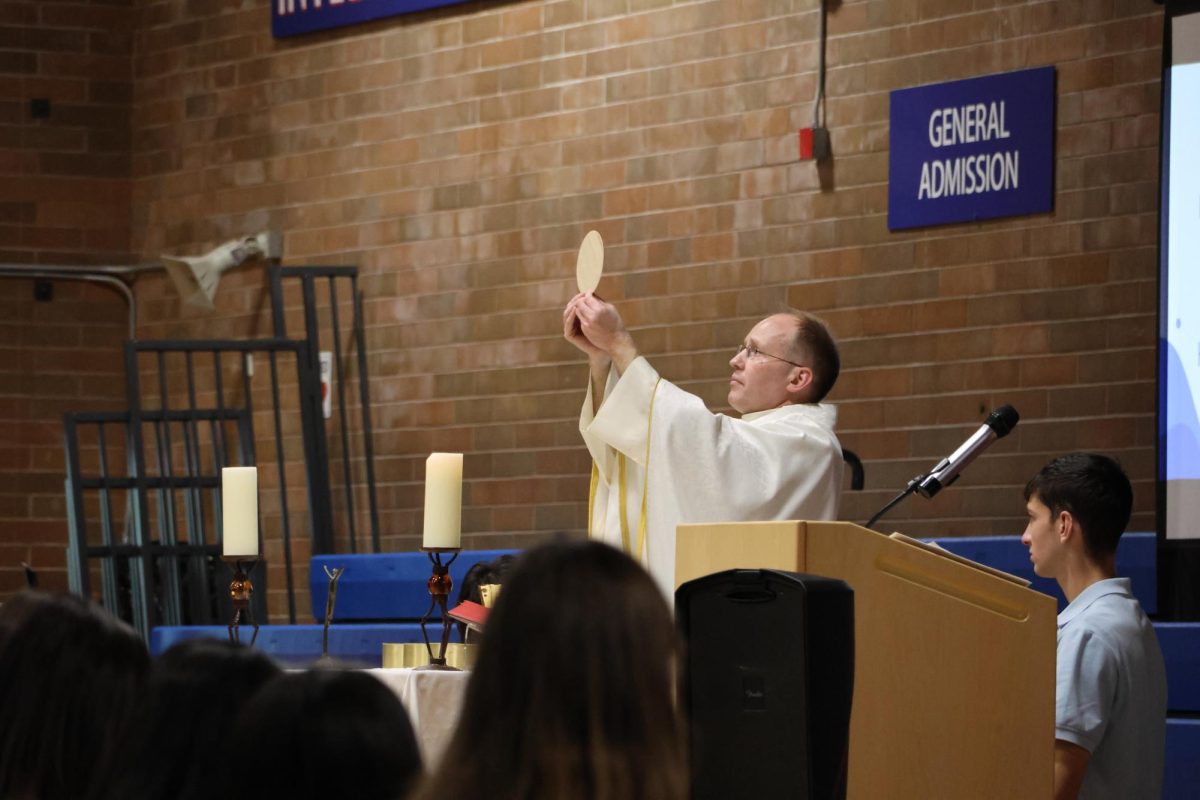
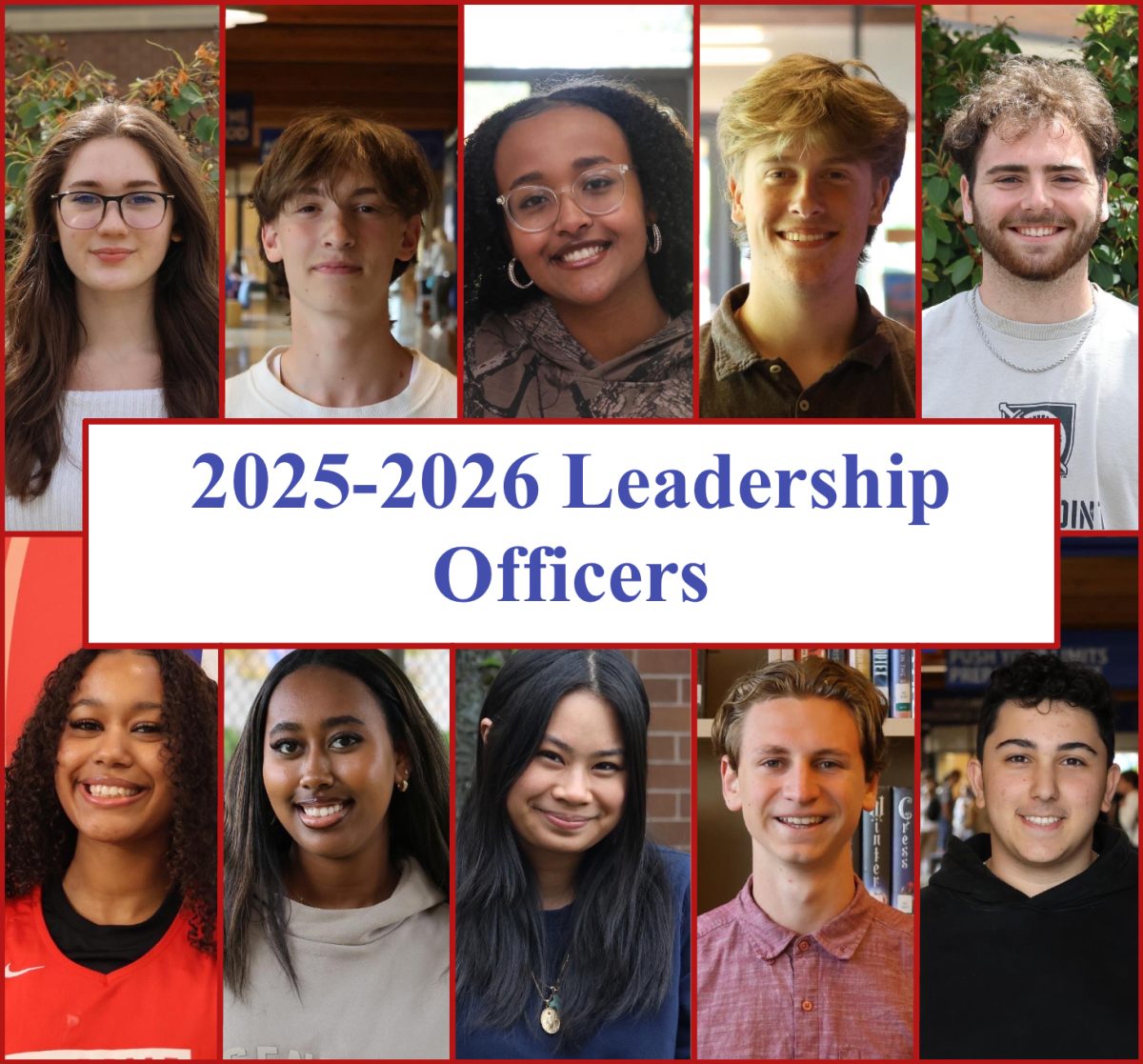
David Sharyan • Nov 30, 2023 at 6:52 pm
Wow! So proud of us. Great article, Finn!